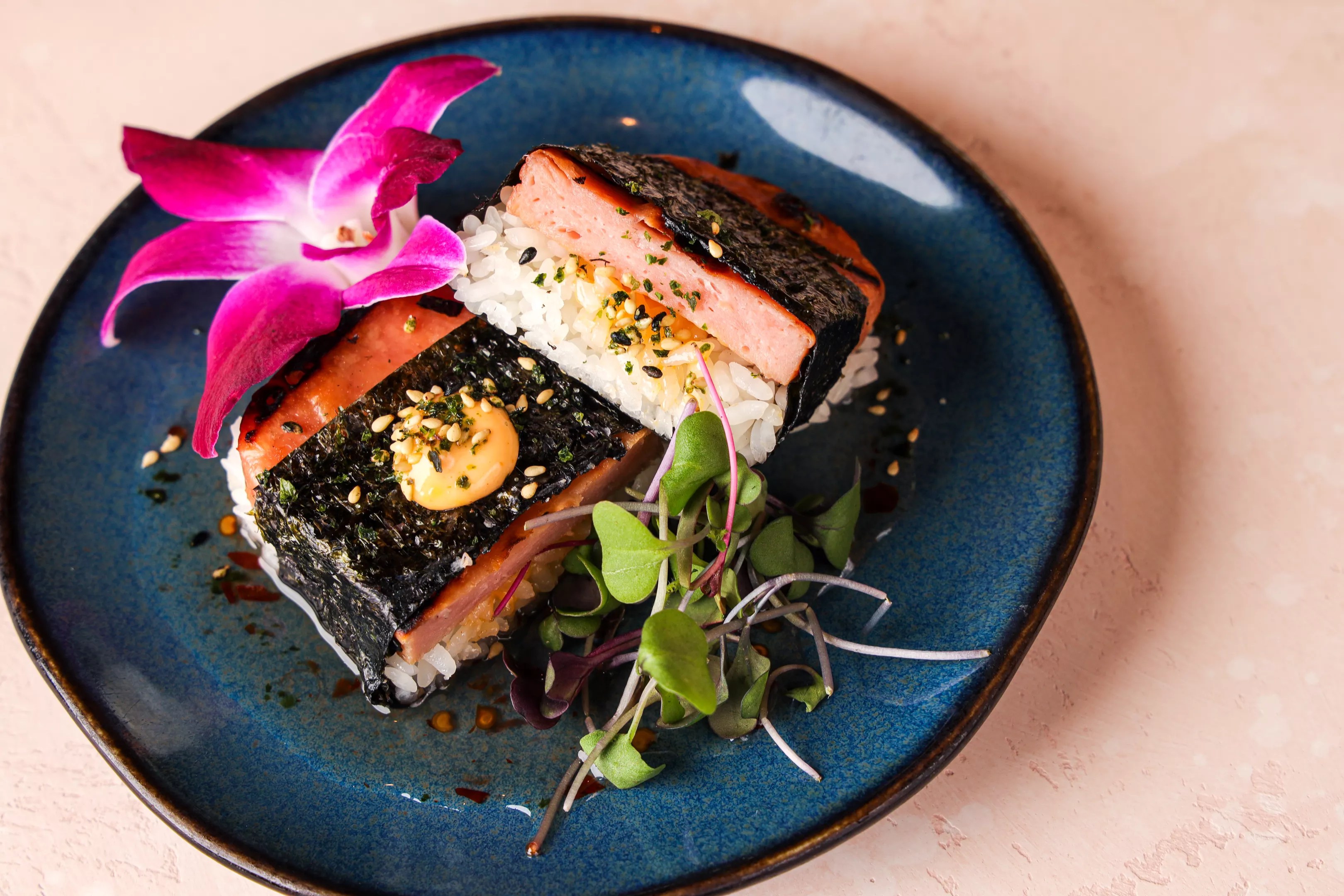
Adrift

Audio By Carbonatix
You can find Spam musubi at any self-respecting tiki bar. But where are they?
Back in the day, the originators of the tiki bar craze had outposts in Denver. Don the Beachcomber and Trader Vic’s, both founded in the 1930s, hit their stride after WWII, and eventually found their way to Colorado by the 1960s and ’70s. They served up a stereotyped version of Polynesian culture revolving around tasty alcoholic drinks designed to satisfy island fantasies with a dreamy, sexy Hollywood glamor and post-war nostalgia flavored with cultural appropriation. Who doesn’t like a fruity, rummy mai tai? But the first wave of tiki bars across the U.S. eventually washed away.
Now your grandfather’s tiki bars have been replaced by a new wave of tiki bars led by Mauka Tiki, which became Adrift in 2012. Things have gone swimmingly for the South Broadway bar, which is featuring a bold, foodie-luring promotion from May 20-24: free Spam musubi with any purchase.
For decades, Spam has been derided as “mystery meat” – but that’s unfair. The canned meat, whose name is generally considered a portmanteau of “spiced ham,” was introduced by Hormel in 1937 as an inexpensive and long-lasting (because of the can) product made of pork shoulder, which wasn’t a popular cut. During WWII, Spam found its calling, and was shipped by Hormel to wherever U.S. military personnel were stationed. One count has more than 150 million pounds of Spam sent to Europe and the Pacific during the war.
In the Pacific, Spam stuck. Per capita, the world’s two highest-consuming spots today for Spam are Korea and Hawai’i (with a shoutout to Okinawa, where most of the U.S. military troops in Japan are based).
In Hawai’i, the marriage of Spam with musubi, or rice balls (also called onigiri), was a natural mashup, given the large Japanese American population in the islands. The rectangular shape of Spam musubi comes not from the nice molds available today, but from using the emptied Spam cans to press rice and top it with a slice of Spam, then wrapping nori seaweed around the brick. The extra stuff, like furikake sprinkles and teriyaki sauce to grill the Spam, came later. Adrift’s version has special pizzaz from the pineapple in its teriyaki drizzle.
Long before mainlanders embraced poke – another Hawaiian invention with Polynesian roots, dating back to before the arrival of Haole Europeans – Spam musubi was a popular comfort food, especially within Japanese American communities.

The popular Punch Bowls at Adrift are meant to be shared.
Adrift
In Denver, you can find Spam musubi at any number of Hawaiian or faux-Hawaiian eateries, and even at shops like Pacific Mercantile. Any event or festival at the Tri-State Denver Buddhist Temple in Sakura Square or Arvada’s Simpson United Methodist Church (which has a largely Japanese American congregation) is sure to serve Spam musubi, too.
But this Adrift deal is new, and it will be followed by another promotion:
$10 off any Punch Bowl, whether it’s the one designed for two (normally $36) or four ($68).
Adrift is open from 5 to 10 p.m. Tuesday through Thursday and 4 p.m. to midnight Fridays and Saturdays at 218 South Broadway; get more info at adriftbar.com.